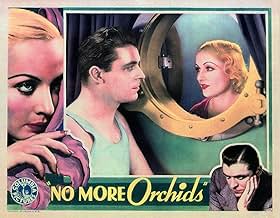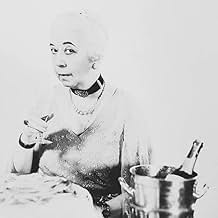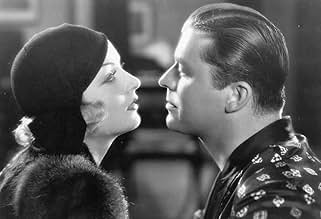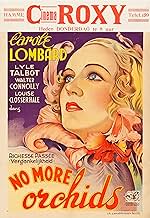An heiress forced to marry into royalty in order to save her banker father falls in love with another man while on a cruise.An heiress forced to marry into royalty in order to save her banker father falls in love with another man while on a cruise.An heiress forced to marry into royalty in order to save her banker father falls in love with another man while on a cruise.
- Director
- Writers
- Stars
Sidney Bracey
- Holmes
- (uncredited)
Belle Johnstone
- Housekeeper
- (uncredited)
Edward LeSaint
- Capt. Jeffries
- (uncredited)
Wilfred Lucas
- Banker
- (uncredited)
Charles Hill Mailes
- Merriwell
- (uncredited)
Harold Minjir
- Modiste
- (uncredited)
Broderick O'Farrell
- Benton -- Butler
- (uncredited)
William Worthington
- Cannon
- (uncredited)
- Director
- Writers
- All cast & crew
- Production, box office & more at IMDbPro
Featured reviews
A wonderful cast of supporting character actors enlivens a soap opera about how Carole Lombard falls in love with reverse-snob Lyle Talbot and thwarts the plans of her grandfather -- played by the wonderful C. Aubrey Smith -- to marry his family into European royalty. In the meantime her father -- played by Walter Connolly -- is about to see his bank fail.
It seems apparent that the novel on which this book is based is a lot more complex than this movie. The dialogue is competent, but not great, and people tend to play types rather than individuals. But while this is not a great movie, the wonderful players make it far more enjoyable than anyone would expect it to be. Even Lyle Talbot, usually confined to a simple juvenile lead at his home base of Warner Brothers in this period, is excellent, if a tad declamatory.
It seems apparent that the novel on which this book is based is a lot more complex than this movie. The dialogue is competent, but not great, and people tend to play types rather than individuals. But while this is not a great movie, the wonderful players make it far more enjoyable than anyone would expect it to be. Even Lyle Talbot, usually confined to a simple juvenile lead at his home base of Warner Brothers in this period, is excellent, if a tad declamatory.
No More Orchids (1932)
*** (out of 4)
Interesting, if a tad bit strange, drama about a rich brat (Carole Lombard) who falls in love with an average guy (Lyle Talbot) but her greedy grandfather (C. Aubrey Smith) forces her to marry a rich Prince so that her father will be saved from his debt. NO MORE ORCHIDS isn't a very well known film and even fans of Lombard seems to have never seen it. That's a shame because it turned out to be a pretty good gem even if the final ten-minutes are extremely bizarre and in the end they really don't work. The film benefits from a very strong screenplay as well as some strong performances. The actual story of this thing is the type of melodrama that had been going on throughout the silent era and would continue throughout the 30s as we have the bad girl falling for a good guy only to be forced into the arms of someone else. What makes it seem so fresh and original here is that the screenplay is smart enough to actually make for some nice dialogue scenes where everything plays out in a believable fashion. This includes several scenes of Lombard having to really think through her decision and this makes for some very good drama. The screenplay is smart enough to make her character more than just a single note and the viewer certainly benefits from this. Lombard does a very good job as she was perfectly capable of playing the brat side of this woman but we also believe her when the character slowly starts to change due to her feelings for Talbot. As for Talbot, he too turns in another winning performance as does Walter Connolly as the father and Louise Closser Hale nearly steals the film as the fast-talking grandma. Smith turns in his typical fine performance as well. Fans of pre-code will be happy to see some rather risky dialogue about Lombard not being a virgin and we even get a sequence where she takes her rob off and is standing around in her bra and panties. Not too shocking in today's age but this was 1932 after all. The film takes a rather obvious twist towards the end and I think what the father does, which I won't ruin, doesn't work at all. The screenplay tries to milk this sequence for everything it's worth but I felt it fell flat on its face and didn't pack the punch it was going for. Even so, NO MORE ORCHIDS is still a fine little film that deserves to be seen by more.
*** (out of 4)
Interesting, if a tad bit strange, drama about a rich brat (Carole Lombard) who falls in love with an average guy (Lyle Talbot) but her greedy grandfather (C. Aubrey Smith) forces her to marry a rich Prince so that her father will be saved from his debt. NO MORE ORCHIDS isn't a very well known film and even fans of Lombard seems to have never seen it. That's a shame because it turned out to be a pretty good gem even if the final ten-minutes are extremely bizarre and in the end they really don't work. The film benefits from a very strong screenplay as well as some strong performances. The actual story of this thing is the type of melodrama that had been going on throughout the silent era and would continue throughout the 30s as we have the bad girl falling for a good guy only to be forced into the arms of someone else. What makes it seem so fresh and original here is that the screenplay is smart enough to actually make for some nice dialogue scenes where everything plays out in a believable fashion. This includes several scenes of Lombard having to really think through her decision and this makes for some very good drama. The screenplay is smart enough to make her character more than just a single note and the viewer certainly benefits from this. Lombard does a very good job as she was perfectly capable of playing the brat side of this woman but we also believe her when the character slowly starts to change due to her feelings for Talbot. As for Talbot, he too turns in another winning performance as does Walter Connolly as the father and Louise Closser Hale nearly steals the film as the fast-talking grandma. Smith turns in his typical fine performance as well. Fans of pre-code will be happy to see some rather risky dialogue about Lombard not being a virgin and we even get a sequence where she takes her rob off and is standing around in her bra and panties. Not too shocking in today's age but this was 1932 after all. The film takes a rather obvious twist towards the end and I think what the father does, which I won't ruin, doesn't work at all. The screenplay tries to milk this sequence for everything it's worth but I felt it fell flat on its face and didn't pack the punch it was going for. Even so, NO MORE ORCHIDS is still a fine little film that deserves to be seen by more.
Carole Lombard was loaned from Paramount to Columbia to star in No More
Orchids in which she plays a spoiled heiress, not unlike the one she played in her
later classic My Man Godfrey.
She lives pretty high on the hog, but the pig is about to be slain as this is the Great Depression and the bank that her father Walter Connolly heads is about to go belly up. Her grandfather C. Aubrey Smith does not like his son-in-law.
But he does like his granddaughter and he wants Lombard to marry some empty suit with a title. He fancies being in-laws to nobility. He's got the empty suit picked out. but Lombard wants to marry lawyer Lyle Talbot.
In the end it's Connolly who makes the sacrifice so that Lombard can live her life with whom she loves. Won't say how.
Good performances all around. The revelation here is C. Aubrey Smith who usually plays stern but upstanding upper crust types is a real no good in this one. Good but way off type for him.
She lives pretty high on the hog, but the pig is about to be slain as this is the Great Depression and the bank that her father Walter Connolly heads is about to go belly up. Her grandfather C. Aubrey Smith does not like his son-in-law.
But he does like his granddaughter and he wants Lombard to marry some empty suit with a title. He fancies being in-laws to nobility. He's got the empty suit picked out. but Lombard wants to marry lawyer Lyle Talbot.
In the end it's Connolly who makes the sacrifice so that Lombard can live her life with whom she loves. Won't say how.
Good performances all around. The revelation here is C. Aubrey Smith who usually plays stern but upstanding upper crust types is a real no good in this one. Good but way off type for him.
Rather schizophrenic comedy-drama from post-Prohibition but pre-Hays Code, meaning Carole Lombard gets to strut around in her flimsies, make prurient wisecracks, and be not the least timid about getting what she wants. She's a rich girl with a bumbling banker dad (Walter Connolly, playing virtually the same role as a year later in "It Happened One Night") and an aren't-I-adorable grandma (Louise Closser Hale, trying to be May Robson) who falls for unrich Lyle Talbot (a perfectly OK leading man, who looks a bit like the pre-mustachioed Gable, and has some of the Gable swagger). Why her awful grandpa would insist on her marrying somebody else isn't clear, nor is it clear why the sacrifice at the end makes everything all right. But ignore the plot and enjoy the ribald ripostes, and, especially, Carole looking gorgeous and wriggling around with great vivacity. She has star quality, but beyond that, she's a real actress, and you'll notice how carefully she's building and sustaining a not-always-likable character. Fine work.
Spoiled rich girl (Carole Lombard) falls in love with poor boy (Lyle Talbot). But her father's financial troubles may force her to marry a wealthy prince. Pre-Code soaper features a scene of Carole Lombard in her underwear, which is as good a selling point as any. Carole's good in this and, of course, beautiful. Talbot does okay. Nice supporting cast. Louise Closser Hale is great as Carole's grandmother, Walter Connolly her extremely likable father, and C. Aubrey Smith fine in a villainous role. Enjoyable enough. It's not a bad movie of its type. Helps if you're a big fan of Lombard. The ending seems silly on paper but was surprisingly effective.
Did you know
- TriviaWalter Connolly (Bill Holt) and Jameson Thomas (Prince Carlos) would again play a father and his prospective son-in-law in New York - Miami (1934).
- Goofs(at about 6 mins) When Anne Holt is told to take off her dress, she is clearly not wearing a bra. Two edits (six seconds) later, Anne is seemingly struggling to pull her dress below her hips while wearing a bra, which she would not have had time to put on while simultaneously removing her dress.
- ConnectionsReferences Une pauvre petite fille riche (1917)
- How long is No More Orchids?Powered by Alexa
Details
- Release date
- Country of origin
- Language
- Also known as
- Richesse perdue
- Filming locations
- Wall Street, Manhattan, New York City, New York, USA(establishing shot for the Banker's Club scene)
- Production company
- See more company credits at IMDbPro
- Runtime1 hour 18 minutes
- Color
- Aspect ratio
- 1.37 : 1
Contribute to this page
Suggest an edit or add missing content






































